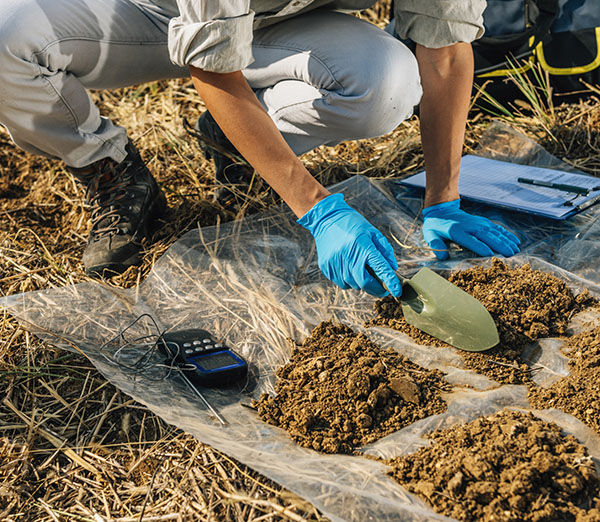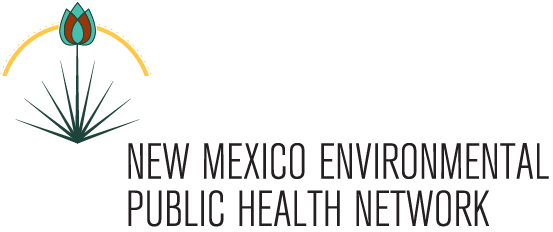
Just like the air that we breathe and the water we drink, our soil and land also need to be protected. Healthy soil helps sustain the food we eat, provides a filtering mechanism for pollutants, and regulates water. Healthy land and soil also serve to absorb carbon emissions that impact climate change; currently, soils remove about 25 percent of the world’s fossil fuel emissions each year.
New Mexico has an abundance of land, as it is the fifth largest state in the United States, and a state with a relatively small population. Protecting and managing New Mexico’s vast, beautiful spaces for the health of future generations is important. Some of the environmental stresses impacting New Mexico’s land include gas and oil extraction, use of pesticides and fertilizers, over grazing and over cultivation, and other activities that cause the degradation of soils. These stresses have impacts on human health including respiratory diseases from atmospheric dust, water and food-borne diseases and reduced food supplies with the threat of malnutrition.
Toxic substances on land may remain in the soil or travel down or up to create groundwater or air pollution. Oil contamination can kill vegetation, sterilize soil, and may harm human and animal health. The most common routes of exposure to soil pollutants are by eating, breathing, and absorbing through the skin. Young children are typically at the highest risk of ingesting soil contaminants because of their frequent hand to mouth behaviors.




